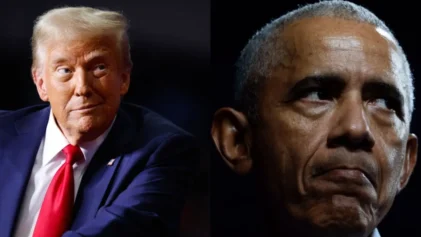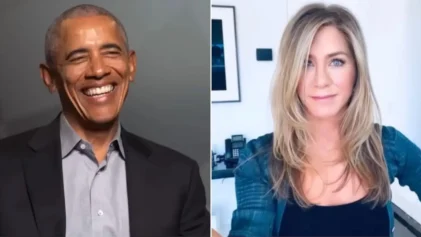Faced with the long list of dispiriting statistics describing the dire plight of Black and Hispanic young men, President Obama today will announce an initiative aimed at marshaling an array of resources, research and hundred of millions of dollars in funding to improve the life chances of this population.
The program is to be called “My Brother’s Keeper” and it represents an issue close to the president’s heart, according to his longtime adviser Valerie Jarrett.
“The president personally identifies with many of the challenges these young men face as a man of color himself, whose life was not always on the right track,” Jarrett said in a conference call with reporters yesterday.
For a president who has been frequently criticized in the Black community for not doing enough to improve the lot of African-Americans, this initiative is a resounding response to the critics—and one that probably will be thoroughly attacked by his haters on the right, who have long circulated conspiracy fears that such programs targeted specifically for Blacks were exactly what he had in mind all along.
“My Brother’s Keeper” will bring together philanthropic foundations, non-profit groups and private businesses to create more pathways to success for a group of young men who are disproportionately pushed out of school, incarcerated and impoverished. The list of foundations who have already signed on include some of the biggest and most prestigious in the country: the Annie E. Casey Foundation, The Atlantic Philanthropies, The California Endowment, The Ford Foundation, The John and James L. Knight Foundation, The Open Society Foundations, The Robert Wood Johnson Foundation, The W.K. Kellogg Foundation and The Kapor Center for Social Impact.
Together they have already invested $150 million in support of the initiative and have pledged another $200 million over the next five years, with additional funding to come from other philanthropists and businesses.
“As leaders of American philanthropic institutions, we believe that to bring out the best in America requires that we work together to bring out the best in our young people. We know that they are most likely to succeed and thrive when they have strong families, good schools, safe homes, supportive communities, and opportunities for productive, rewarding jobs,” the nine funders said in a jointly signed letter. “Yet, the evidence is clear: there are persistent hurdles that stand in the way of too many boys and young men of color – making it difficult for them to stay on track and reach their full potential.”
“It is in the nation’s best interest to remove the hurdles that prevent so many of our promising young people from becoming productive members of society,” the letter continued. “Our country cannot afford for them to fail.”
The nine funders already prepared a report that says only about half of all African-American, Latino and Native-American boys will graduate from high school on time. In addition, according to the report, among the 16 to 24-year-old males of color who are not enrolled in school, less than half are employed and a third are in prison, jail or on probation or parole.
The program will bring together several federal agencies, including the Justice Department and the Department of Education, and will be organized by Broderick Johnson, assistant to the president and Cabinet secretary.
Cecilia Munoz, director of the White House Domestic Policy Council, said Obama directed his team to use empirical data and best practices in shaping the goals of “My Brother’s Keeper.”
“We know, based on academic evidence, that boys and young men of color, regardless of economic background are disproportionately at risk and it starts at an early age,” Munoz said to reporters. “There is an empirical reason to make sure we are focusing deliberate attention on young men and boys of color.”
Jarrett promised that not only would the president be closely involved with the initiative during every step of its development, but that he and first lady Michelle Obama would continue to work on the issue after he leaves office. She said the seeds of the program were planted when Obama went back to Chicago last February to talk about gun violence at a high school in the South Side and met with a group of Black students who were part of a program called “Becoming a Man.”
As he shared with them his own struggles growing up as a young Black man raised by a single mother who at times was on food stamps, the boys talked about their own lives. Jarrett said he was deeply touched.
“I saw how meaningful that interact was with him,” she said. “He told them the only difference between them and the president in terms of how they grew up is that he grew up in a more forgiving atmosphere.”
Jarrett claims the new initiative has garnered bi-partisan support. She said the administration hopes to work Republican senators who have shown concern for many of the issues young men of color face, including Sens. Rand Paul and Marco Rubio.


